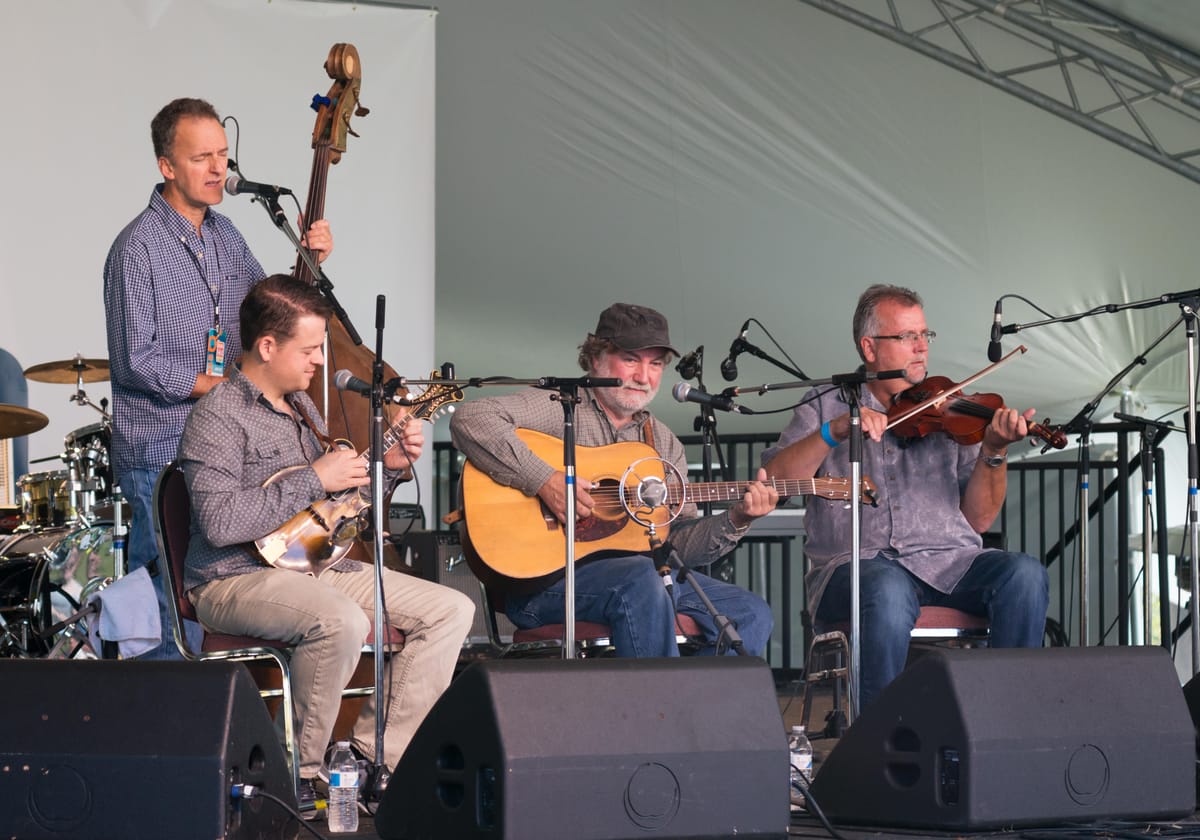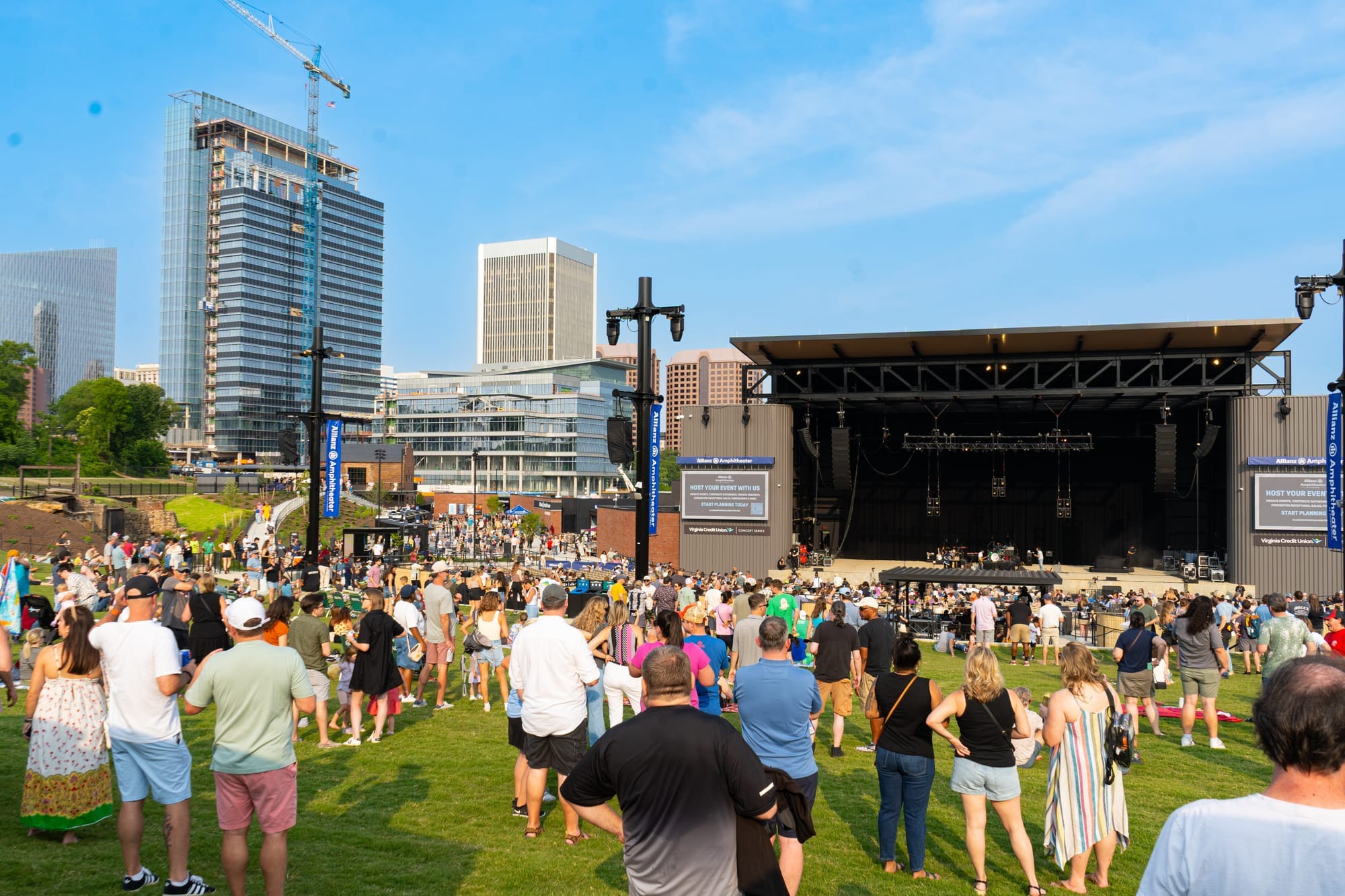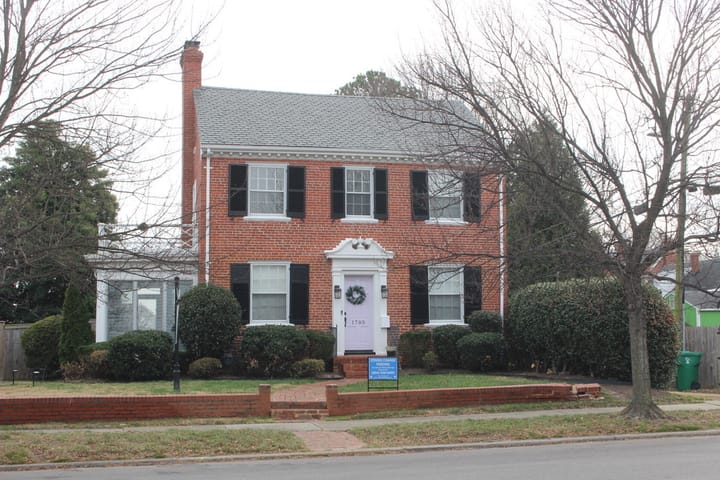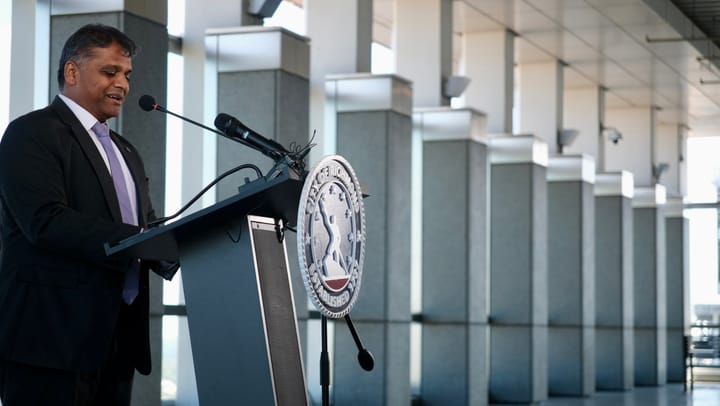
The Richmond Folk Festival enters its amphitheater era
Note: This story has been updated to note that the Allianz Amphitheater is not charging rent to the Folk Festival, and will give 25% of food and drink net proceeds.
Since moving to Richmond three years ago, Alison Farmer has made attending the Richmond Folk Festival a part of her regular October routine.
“I go every year, pretty much every day,” she said. “I had no idea what a gem it was until I moved here and stumbled upon it the first year. And ever since, I'm like a little PR campaign trying to get all my friends to visit every year so they can see it themselves. I just think it's such a great gem for the city.”
Farmer said she loves getting exposed to new music and groups, and to the views of the James River.
“The fact that there are five stages and that it's free is just amazing to me,” she said. “Honestly, that was one of the things that attracted me to Richmond when I moved here is it feels like a city that very much punches above its weight when it comes to arts and culture. And [this] is a prime example of it.”
The Richmond Folk Festival is a three-day celebration of music, dance, and arts and crafts that sets up camp on the slopes overlooking the James River, sandwiched between 2nd Street, 5th Street and Tredegar Streets. Events also happen across the canal on Brown’s Island.
Last year’s festival drew roughly 200,000 people throughout the weekend, according to organizers.
“It's a big crowd. It has become the largest folk festival of its kind in the country,” said Lisa Sims, chief executive officer and president of Venture Richmond which runs the event.
The festival grew out of the visiting National Folk Festival, which ran from 2005-2007. Each day, fans get to check out five different stages where almost 30 different performers from around the country and the world will perform.
“I was talking to a member of the technical team that we have who works on the National Folk Festival and other folk festivals in the country,” said Sims. “And she was saying it's really striking how much Richmond has sort of just taken this festival under its wing as a community. That it is really a beloved event, which we're very thankful for.”
Sims said the free festival costs $1.9 million over the three days, but…
“There's no profit on the Folk Festival, generally,” she said. “It loses money each year, and it is subsidized. Venture Richmond provides a subsidy to it if it runs short. Our ultimate goal is that it would break even, and it has done that some years.”
Other revenue comes from merchandise and vendor sales, such as food or crafts.
“They pay for their space at the festival,” Sims said. “All the money they make selling their goods and food is theirs to keep. We just have a flat fee that the vendors pay. And then we also sell beer, wine, water, and soft drinks. So those are also sources of revenue for us.”

Allianz enters the picture
Something new this year for both the organizers and the festival goers is the addition of the Allianz Amphitheater, which is going to be the Center for Cultural Vibrancy Stage.
One of the reasons the new amphitheater isn’t the main stage, said Sims, is because they won’t be able to collect the full revenue from that stage. The amphitheater has offered free rental fees, and will send 25% of the proceeds to the Folk Festival.
“We tend to sell a lot of beverages at our larger stages,” Sims said. “When we're in the amphitheater, we don't get that revenue. But we will have the Folklife stage, which is one of the most popular stages that we have.”
Another issue that festival goers may run into this year is the clear bag mandate at the Allianz Amphitheater.
“So if you go into that stage, you must have a clear bag," she said. “If you don't have a clear bag with you, you will have a bag check, and you'll be able to leave your bag if you'd like and take a clear bag in.”
That clear bag policy isn’t sitting well with longtime festival goer Adam Steinman. He’s been going to the Richmond Folk Festival ever since it started 20 years ago. He’s has been a few shows already at the Allianz, but said he gets annoyed with the venue and is not happy with the policy.
“Not great customer service that they are sticking to their policy of clear bags only and no chairs,” he said. “What if you have somebody who's a senior citizen or with a cane and they have a chair, can't bring them in there.”
Besides that, Steinman, who plans on riding his bike to the event, can’t wait to go.
“I'm the kind of person who gets goosebumps listening to music,” he said. “I like supporting local artists or national artists, from South America, Russia, Asia, Africa. And the caliber of musicians that go there is pretty high.”
Volunteers make the difference
Sims said the many corporate sponsors carry a great majority of the financial load, about 60%, but the 800 or so volunteers are at the heart of the fundraising to keep the festival free.
“We have never, I will say, had too many volunteers,” she said. “Venture Richmond has a very small staff. So we have a lot of folks who we bring in to help with the festival, but we absolutely couldn't do it if we didn't have volunteers.”
Those volunteers do everything from run merchandise tables, to direct traffic to help the artists navigate the fields.
“It's sort of like their local contact who holds their hand, meets them at the hotel, rides to the site with them, helps them around, gets them anything they need locally,” Sims said. “We have a very, very engaged and robust volunteer team, and we just couldn't do it without them.”
One of those volunteers is El Douglas, who recently moved to North Chesterfield. It’s their first time going to the festival and their first time volunteering in Richmond.
“I am super looking forward to the Blackbyrds, which is on Saturday night at one of the Brown’s Island stages,” said Douglas. “They're actually a D.C. group and I never got to see them up there. So it's kind of funny that I'm seeing them in Richmond.”
They’ll be working one of the merchandise tables.
“I will be holding down the merch table at Browns Island, which is kind of nice because we'll be able to hear the music while we're there for our shift,” they said.
One of the main volunteer jobs and a big revenue generator said Sims are those work the “bucket brigade” and those who are the “Askateers.”
“They are the people who move around from stage to stage and make the “asks” of the audience before the artists go on,” Sims said. “They're passionate about the festival, and we know that they know how to speak in front of groups, because not everybody wants to ask for money in front of a group of thousands of people.”
Sims said both the bucket brigade and the Askateers bring in about $100,000 every year.
This year's festival runs Friday evening to Sunday afternoon. A full schedule of acts is available here. (Update: An earlier version of this story misstated the amount of revenue from food sales.)
The Richmonder is powered by your donations. For just $9.99 a month, you can join the 1,200+ donors who are keeping quality local journalism alive in Richmond.






